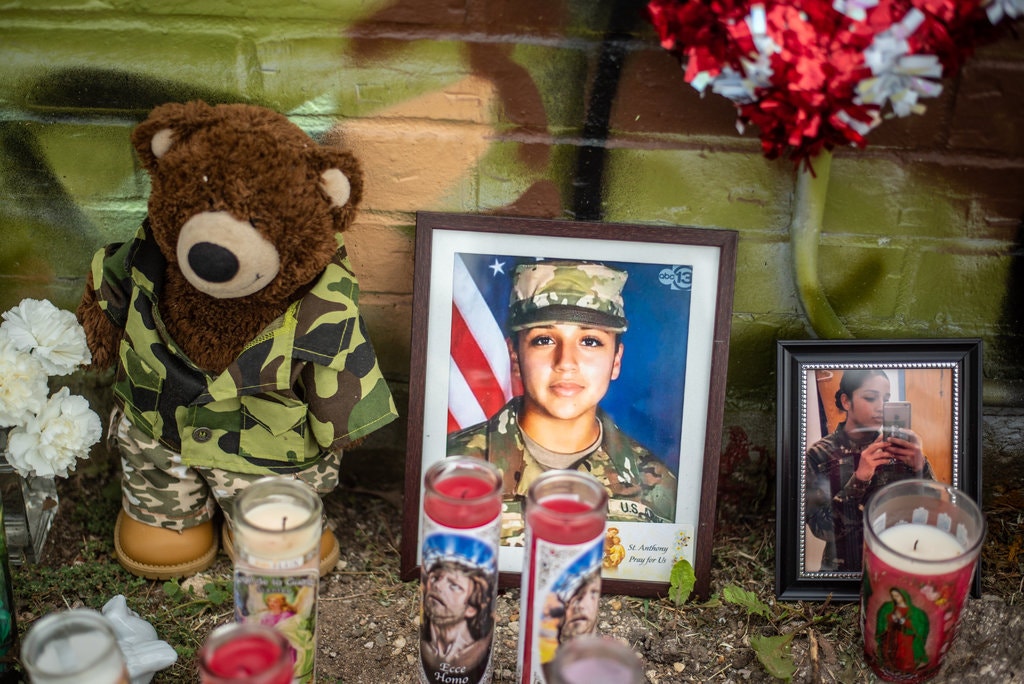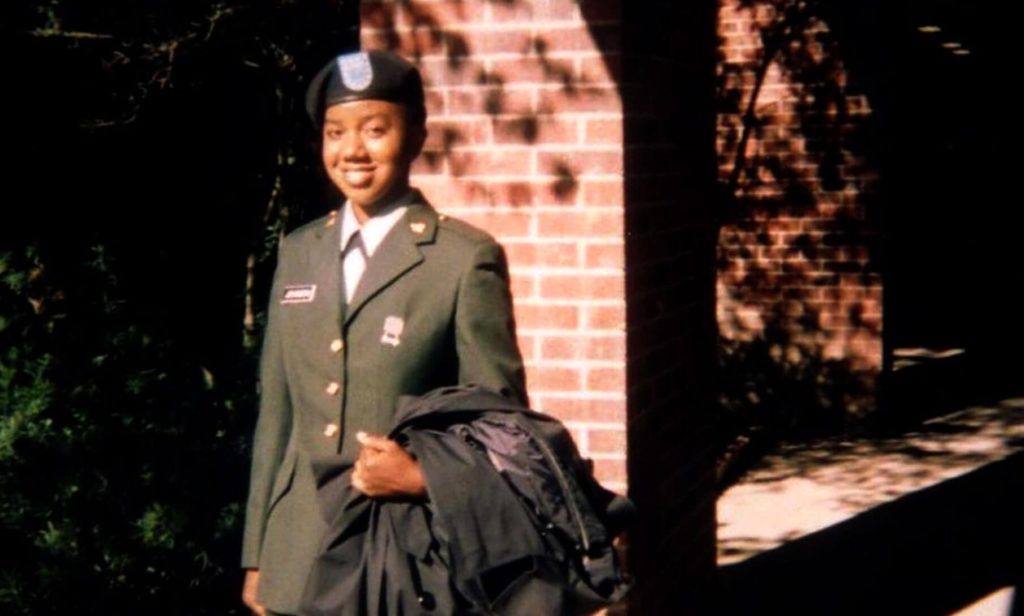by Allison Lee

Picture this: You’re twenty-years-old, stationed in an armory in Fort Hood, Texas, eager to serve the country that has provided for you. However, fate is twisted and cruel. During your time in the military, you are sexually harassed by a sergeant and you kept to yourself because you’ve seen how other female soldiers reported the same incident and were swiftly dismissed. You know reporting what had happened would only earn you more harassment and retaliation, so you only tell the incident to your family. Soon after all of this happens, you are last seen in the parking lot of your barracks before being bludgeoned to death with a hammer in the armory room, dismembered, and your remains transported to the Leon River where you are buried, your remains to be discovered by a team of contractors two months after your passing.
I hope that narrative sent chills down your spine because it should. That wasn’t an essay prompt, it is the sorrowful story of Vanessa Guillén.
Guillén went missing on April 22nd after encountering sexual harassment at her base and was later believed to be killed by Aaron David Robinson (who fatally shot himself in early July when confronted by law enforcement) on the same day. Despite Guillén’s family testifying that Vanessa had told them about the harassment before her disappearance, the Army has not substantiated that claim and investigators reported that information uncovered points toward harassment, but there’s no conclusive evidence to prove that it was sexual.
Natalie Khawam, the Guillén family’s attorney, said that she had come across two alleged sexual harassment incidents: one of Vanessa being walked in on while she was showering and another of vulgar verbal assault. Despite this, the Army released a statement in June saying: “… investigators have no credible information or report that Vanessa Guillén was sexually assaulted.”

Now, riddle me this: How can our society so nonchalantly dismiss a woman who claims she has been sexually harassed?
This is the root of the problem all across the world – society’s unchallenged confidence in writing a woman’s words off as ‘confused’, ‘nonsensical’, or ‘lacking evidence’. Globally, victims of sexual harassment and assault are afraid of coming forward and instead choose to keep their skeletons in the closet because they know the chances of them being taken seriously are slim to none.
Let me ask you this then: What good does it do somebody to say that they’ve been sexually harassed? The amount of courage one has to pluck up to admit that something this traumatic has happened is substantial. It does not do well to lie about being sexually harassed and that itself should be more than enough reason for us to believe someone when they say they’ve experienced it and take action to help prosecute the perpetrator.
In light of Vanessa’s passing, I’m reminded of LaVena Johnson’s unfortunate death back in 2005. The controversy over Johnson’s passing was that many believed the Department of Defense tried to cover up evidence of rape and battery, hence tampering with justice.

Johnson was an honor student enlisted in the Army upon graduating high school; her father was previously a soldier in the military and she wanted to walk in his shoes. Johnson had only been deployed to Iraq for two months prior to her death and was about to turn twenty.
Upon being found in her tent, the Army ruled her death as a mere suicide. According to the Army, Johnson was devastated by a breakup and took her own life via an M-16 automatic rifle to her mouth.
This baffled the Johnson family as just days ago, they had heard from their daughter whose call showed no signs of distress or suicidal hints. When Johnson’s family decided to have an open-casket funeral, the Army tried to push for a close-casket one. If that doesn’t spell suspicious to you, I don’t know what does. Lo and behold, the Army’s fabricated story started to tear at the seams.
The bullet wound was on the side of Johnson’s head instead of in her mouth as the Army had suggested. Johnson’s nose was evidently broken and there were slight cuts around her lips. Later, Johnson’s father learned that no rape kit was performed on his daughter, meaning LaVena’s death was ruled as a suicide before the autopsy provided complete medical results.
The Army had deliberately tried to cover up potential harassment that LaVena might have faced and they are doing it again to Vanessa. It’s disappointing that people who are protecting the country are not protected from sexual harassment themselves and instead have to live in fear of being retaliated if they brought this to their higher-ups.
How do we keep letting people down? How can we sleep at night when we have denied Guillén, Johnson, and so many others the chance to even live past their twentieth birthday? This misogynistic culture is destroying us by grasping at one life at a time; that what happened fifteen years ago is being mirrored today means we are not doing enough to protect women from these assaults and harassments.
In the wake of Guillén’s passing, many lawmakers – largely women – are advocating for a change in the way sex offenses are being investigated and prosecuted in the U.S. military. Old and current service members are encouraged to step up and share their stories that run parallel to that of Vanessa and LeVena’s to let those who are afraid know that they’re not in this alone.
But don’t you see? That’s the problem – society shouldn’t be constructed in a way where women are afraid to say “Somebody hurt me.”